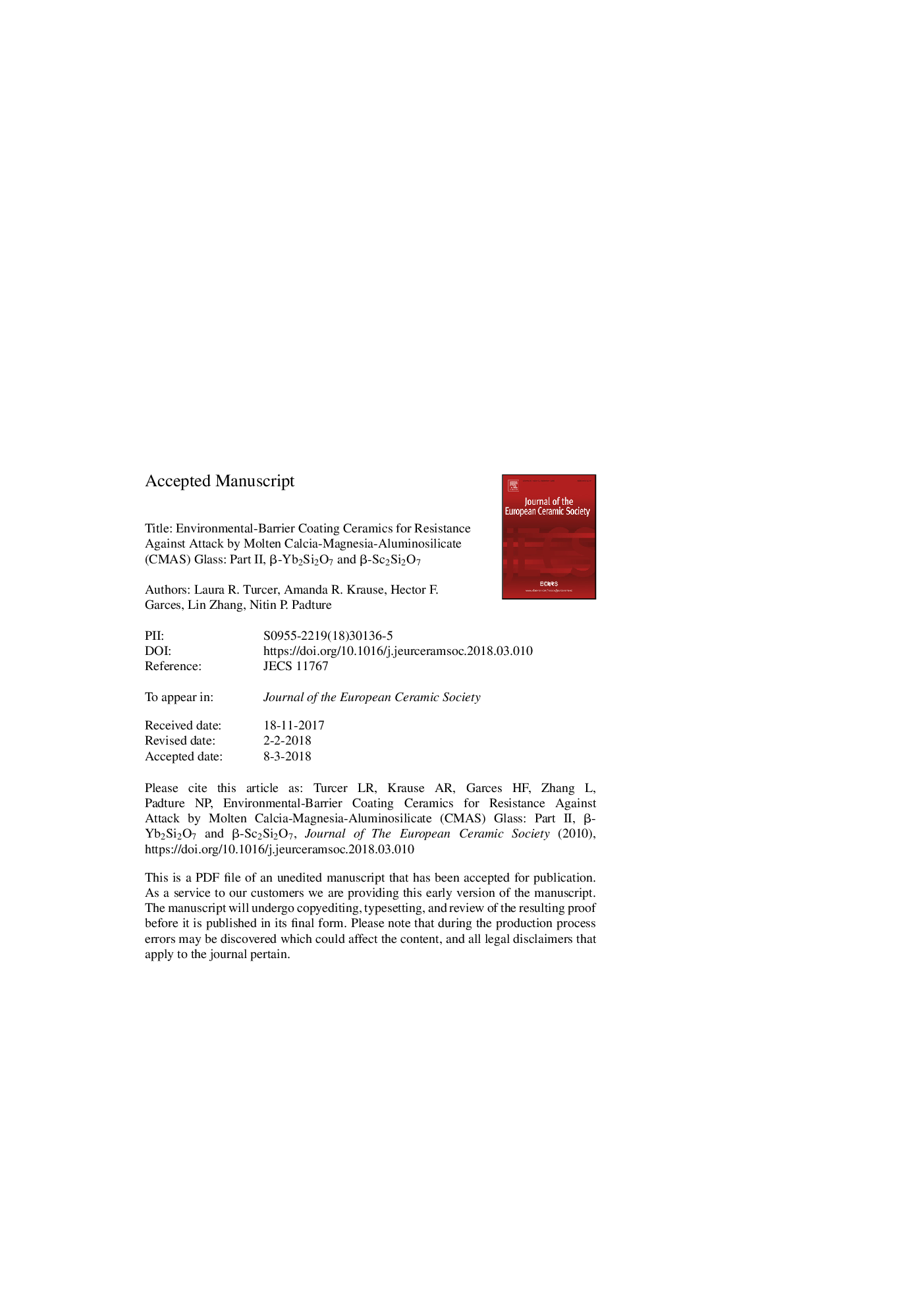| Article ID | Journal | Published Year | Pages | File Type |
|---|---|---|---|---|
| 7897975 | Journal of the European Ceramic Society | 2018 | 43 Pages |
Abstract
The high-temperature (1500â¯Â°C) interactions of two promising dense, polycrystalline EBC ceramics, β-Yb2Si2O7 and β-Sc2Si2O7, with a calcia-magnesia-aluminosilicate (CMAS) glass have been explored as part of a model study. Unlike YAlO3 and γ-Y2Si2O7 in the accompanying Part I paper, little or no reaction is found between the Y-free EBC ceramics and the CMAS. In the case of β-Yb2Si2O7, a small amount of reaction-crystallization product Yb-Ca-Si apatite solid solution (ss) forms, whereas none is detected in the case of β-Sc2Si2O7. The CMAS glass penetrates into the grain boundaries of both EBC ceramics, and they both suffer from a new type of 'blister' cracking damage. This is attributed to the through-thickness dilatation-gradient caused by the slow grain-boundary-penetration of the CMAS glass. The success of a 'blister'-damage-mitigation approach is demonstrated, where 1â¯vol% CMAS glass is mixed into the β-Yb2Si2O7 powder prior to sintering. The CMAS-glass phase at the grain boundaries promotes rapid CMAS-glass penetration, thereby avoiding the dilatation-gradient.
Related Topics
Physical Sciences and Engineering
Materials Science
Ceramics and Composites
Authors
Laura R. Turcer, Amanda R. Krause, Hector F. Garces, Lin Zhang, Nitin P. Padture,
